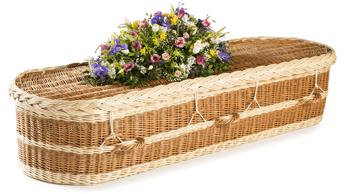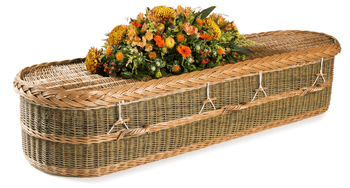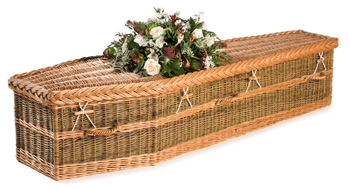Edit Content

Sutton Coldfield Office
Aldridge Office
Great Barr Office
Enquire Now
Edit Content



In this section you wil find information that will answer most questions.
Questions below from National Association of Funeral Directors
When a death which has been expected occurs at home or at a nursing home, the Doctor who has been treating the deceased should be contacted. The Doctor or a colleague will either attend to confirm that death has occurred, or will give permission for the deceased to be transferred to a Funeral Director’s premises, if this is your wish.
You can then contact the Funeral Director of your choice, who will attend to transfer the deceased to their premises.
If a relative who has been a hospital inpatient dies, the doctors who have been treating the deceased will usually be able to issue the Medical Certificate. Ask the ward staff or Doctor what you need to do to collect this Certificate, or ring your local Funeral Director for advice and contact numbers.
Most hospitals will give family members the opportunity to sit with the deceased before transfer from the ward or private room. The deceased will then be taken to the mortuary, prior to collection by your chosen Funeral Director.
The Doctor can only issue the Certificate if he knows the cause of death, and has been treating the deceased for this illness in the last 24 hours. If this is not the case, or if there are other circumstances involved (such as a recent operation, or a possible industrial disease), the Doctor will have to refer the death to the Coroner.
If the death has occurred at home, the Coroner will arrange for the deceased to be taken into his custody, in order that the death can be investigated.
It is the coroner’s responsibility to ascertain the cause of death. The vast majority of deaths that are reported to the coroner are discovered to be from natural causes – only a small proportion require further investigation. The coroner may conduct a post mortem examination of the deceased, which involves examination of the organs to ascertain the cause of the death. The coroner does not require permission to investigate a death within his/her jurisdiction, and cannot be prevented from doing so.
In certain circumstances, the coroner may investigate a death even when the person has been ill for some time. The coroner has to investigate deaths from diseases which may have been caused by the deceased’s occupation, or deaths after recent operations, to ensure that public interest has been served.
Your local Funeral Director will be familiar with the coroner’s procedure in your area, and will be able to advise you how to proceed.
A deceased person cannot be cremated until the cause of death has been ascertained and properly recorded.
The BMA website sets out the procedure:
“Before cremation can take place two certificates need to be signed, one by the GP and one by another doctor. Cremation Form 4 must be completed by the registered medical practitioner who attended the deceased during their last illness. Form 5 must be completed by a registered medical practitioner who is neither a partner nor a relative of the doctor who completed Form 4.
A fee can be charged for the completion of both Forms 4 and 5 as this does not form part of a doctor’s NHS duties. Doctors normally charge these fees as laid down by the B.M.A to the funeral director, who, generally passes on the cost to the family. Doctors are also entitled to charge a mileage allowance, where appropriate”.
Choosing a Funeral Director can be difficult, especially if you are confronted with having to make a quick decision. Many people ask friends or relatives to recommend a firm that they have dealt with, or have heard positive comments about.
If you do not have the opportunity to ask advice from others, find out about the firms in your area, perhaps from internet, advertisements in your local press, parish magazines, or Yellow Pages. These will tell you if the firms are members of the National Association of Funeral Directors – this is your guarantee of a quality service. The advertisements may also give you further information, such as whether it is a small family business or part of a larger group.
If you have already asked a funeral firm to transfer the deceased to their premises, you can still use a different firm to deal with the funeral arrangements.
The company you contact to deal with the funeral will arrange for the transfer of the deceased to their premises. It may still be necessary for you to pay the other firm for the removal of the deceased.
All deaths have to be registered, and the people closest to the deceased have a legal obligation to do this.
Deaths in England and Wales or Northern Ireland should be registered within 5 days – if this is not going to be possible, you should inform the Registrar. In Scotland, deaths must be registered within 8 days.
In England and Wales, the death has to be registered at the registrar’s office in the area where the death occurred. This is the case even if the death occurred a distance from home.
However there is a facility available to attend your local registrar’s office to register a death that occurred in another area. This is called ‘Registration by Declaration’, and involves the two Registrars transferring documents by fax and post in order to register the death. Depending on the circumstances, this can delay the date of the funeral – ask your Funeral Director for advice.
In Scotland, you can register the death either at the place of death, or where the deceased had their normal residence, as long as both are in Scotland.
In order to register the death, you will need to obtain a Medical Certificate from the Doctor who was treating the deceased during the last illness. When the Coroner is involved, this Certificate is replaced by one from the Coroner. The Coroner’s Office will be able to advise you or your Funeral Director when you will be able to attend the Registrar’s Office.
To register a death in England and Wales, the deceased’s NHS Medical Card is the only other document required. However, this is not compulsory, so do not delay registering the death if you cannot find it – the Registrar will explain to you what to do if the Medical Card is subsequently found.
If you have the deceased’s Birth or Marriage Certificates to hand you can take them along to the Registrar, but the documents will not be retained. All that is required is the information contained on them e.g. the deceased’s place and date of birth, and maiden name if applicable.
In Scotland, more documents are required to register a death – contact your Funeral Director for information and advice.
The DSS Form – now called the SF200 Funeral Payments from the Social Fund should be taken or sent to your DSS Office with any pension or benefit books in the deceased’s name, or in joint names. This is also used to assess whether a surviving partner is eligible for benefits such as Widows Benefit. You can download the form on the Department of Works and Pensions website.
Funeral Director’s Form. This is green, and should be given to your Funeral Director to allow the funeral to take place. NB: If the Coroner has investigated the death, and cremation is required, this will be replaced with a form, which the Coroner will send direct to the Funeral Director.
Certified copies of Death Certification. These are copies of the Register Entry, and are the Certificates required by Banks, Insurance Companies etc. to attend to the deceased’s affairs. There is normally a small fee for these.
No. Arranging the funeral involves your Funeral Director discussing with you the type of funeral required, and offering you advice and information as appropriate. This can be done as soon as you have made certain decisions about the funeral – e.g. whether it is to be a burial or cremation.
Then, once you have registered the death, you can arrange with your Funeral Director for the green form to be handed over or collected.
No – there is no requirement to hold a religious funeral service, and there are a number of alternatives. Perhaps a relative or friend could take the service if they feel able to do so. Other Members of the congregation could speak or read verses or poems. The British Humanist Association have a network of officiants who will provide a very personal non-religious ceremony. Ask your Funeral Director for more information or to organise a Humanist/Civil ceremony.
For more information on Humanist funerals – visit: www.humanism.org.uk
For more information on the Institute of Civil Funerals – visit: www.iocf.org.uk
An unattended ( Direct Cremation) funeral will take place at a crematorium of our choice. There will be no service, no minister and no family in attendance. The deceased will be taken in a suitable coffin, straight into the Chapel and then directly through for the cremation. They will of course be treated with the same dignity and respect that any other deceased would be treated, however this is not intended as an option where mourners can still attend.
Funeral Directors who are Members of the National Association of Funeral Directors abide by a Code of Practice, which ensures that they treat their clients and the public fairly. Members are required to have price lists available showing the cost of the services they provide.
To ensure you obtain the best value possible, you should contact at least two Funeral Directors in your area for an estimate of the funeral costs, or obtain a price list from their office to make comparisons. Do not assume that all funeral firms charge the same prices.
If you have chosen a Funeral Director who is a Member of the National Association of Funeral Directors, you will receive a written estimate and confirmation of arrangements before the funeral takes place. This ensures that you are aware of the costs of the funeral you have arranged, and forms the basis of the contract between yourself and the funeral firm.
The following information should be treated as general guidance. We are not able to guarantee the availability of a loan but we do understand how the Department for Work and Pensions makes a decision.
Contact the social fund helpline for further assistance on 0845 608 8657
The DWP Social Fund awards financial assistance to individuals who meet a number of criteria. To qualify, you, and all other family Members who share your responsibility for the funeral, must be receiving at least one of several benefits, and have insufficient savings to pay for the funeral.
The DSS Funeral Payment will provide a limited amount, which may cover a very basic funeral, or provide a contribution towards a more traditional funeral. Your Funeral Director will be able to advise you about the qualifying criteria and the likely contribution available.
You may receive help from the social fund via the DWP if there is not enough money to pay for the funeral and you are responsible for making the funeral arrangements and you or your partner are receiving any of the following benefits: Family Credit, Income Support, Housing Benefit or Council Tax Benefit.
Check what amount of money is available from:
– The estate of the person who has died, such as money from bank or building society accounts
– Any insurance policies of charities, lump sum payments made by a pension scheme or relatives (either yours or those of the person who has died).
– Any savings you have in a bank or building society, National Savings (including certificates or premium bonds) or in cash at home.
– The savings may be in your name or the name of your partner.
– The Widows’ Payment does not count as savings
The Social Fund may make a contribution towards the cost of a simple funeral within the United Kingdom. This includes:
– Bringing the deceased home if the person died away from home but within the United Kingdom
– The Death Certificate
– A Standard coffin
– The Hearse for the coffin and bearers
– Contribution towards fees of funeral director to include chaplain and organist fee
– Cemetery fee or Crematorium fee
– Doctors’ fees
It is true that there are no qualifications required to become a Funeral Director. However, the industry has qualifications. The National Association of Funeral Directors’ has a number of qualifications in Funeral Directing, which are awarded to candidates who achieve a high level of professional competence and experience.
Funeral Directors and staff who have the letters ‘Dip. F.D.’ after their name have been awarded the Diploma in Funeral Directing, issued by the National Association of Funeral Directors.
Today we live in an ethnically diverse society, and this diversity needs to be celebrated in our funeral ceremonies as well as our everyday lives. However, facilities for particular religious communities do vary from region to region- for example, in some areas cemeteries have dedicated sections for Muslim burials, and the local Muslim community is often closely involved with the operation of the Cemetery.
It is the role of NAFD Members to discuss funeral requirements with their clients, and to have knowledge of the different alternatives available to a family, in order to offer sound advice. A professional Funeral Director will have the ability to do this regardless of the religion of the deceased or the immediate family.
However, the Funeral Director will not make assumptions about the family’s wishes based solely upon its religious beliefs. Funerals are individual events, and there are many other variables to be taken into account. Even if you tell your Funeral Director you require a ‘Traditional Hindu funeral’, he or she will still wish to discuss your exact requirements with you, to ensure that no personal wishes have been overlooked.
There are occasions when a client may feel dissatisfied with aspects of the services provided as part of the funeral. The National Association of Funeral Directors Code of Practice , with which all NAFD Funeral Directors are obliged to comply, provides a simple procedure to resolve problems between Funeral Directors and their clients. Copies of the Code of Practice are readily available from all NAFD Members.
If your complaint cannot be resolved directly with the funeral director you have the right to go to NAFD Resolve
If you are unsure, ask your funeral director or get in touch with the NAFD Complaints Team via their online form here NAFD Complaint Form
Jewellery may be left with the deceased or returned according to the wishes of the relatives. For peace of mind we ask that all jewellery and personal effects required are claimed and signed for prior to the day of the funeral as we cannot accept responsibility for claims made after this time.
(Please notify us of your wishes).
The local social services department of the council if the person received meals on wheels, home help or day centre care or had an appliance or piece of equipment issued by the department.
– Any hospital the person was attending
– The family doctor to cancel any home nursing
– The Inland Revenue
– The Social Security office if money was being paid directly into bank or building society accounts – for example retirement pension, attendance allowance.
– Any employer and trade union
– Professional associations (ie clubs or organisations)
– A child or young person’s teacher, employer or college if a parent, brother, sister, grandparent or close friend has died
– A car insurance company (if you are insured to drive the car under the deceased’s name you will cease to be insured)
– The local offices of the gas, electricity and telephone suppliers
– The local housing department or landlord if the person who has died was living in rented accommodation
– The local council Housing Benefit/Council Tax Benefit section if the person who has died was receiving Housing Benefit and/or Council Tax Benefit.
– The Post Office so that they can re-direct the deceased person’s mail.
At the time of making funeral arrangements it is not always easy to realise the emotional benefit that is gained after the funeral by having somewhere to go, a place that you and your family can return to, knowing that a loved one is there.
It has only recently been acknowledged that simply having a relative’s cremated remains scattered or buried in a garden of remembrance does not assist the healing process after the funeral. Today most cemeteries and crematoria that are administered by local councils offer the facilities of small graves that can be purchased solely for cremated remains. Other types of memorialisation are usually available as an alternative.
These memorials can be visited by your family allowing them to pay their last respects
Insurance cover on a vehicle owned by the deceased ceases immediately at the time of death.
The next of kin or executor should inform the insurance company concerned who will offer immediate transfer or cover as appropriate. The vehicle registration documents should be returned in due course to the licensing authority for transfer of ownership to the beneficiary. The driving licence of the deceased should be returned to the licensing authority for cancelling.
We are now proud members of: Association of Green Funeral Directors
‘Green funerals’ is a term often used to describe funerals, which are designed to be simple and environmentally friendly. We can advise you on a whole range of ‘Eco-friendly’ coffins such as wicker, bamboo, seed grass, wool or cardboard, which may be considered to be more environmentally friendly than the traditional solid timber or veneered timber coffins.



Woodland burial sites are where trees or wild flowers are planted instead of using a headstone, eventually turning the site into a woodland or wild meadow. There are many such sites available throughout the United Kingdom – your Funeral Director will be able to provide you with information should you require it.
The type of disposal of the decease’s remains might also be considered. Nowadays there are so called green burial grounds or woodland burial grounds that can be used for full earth internments or for burial of cremated remains. We can advise what is available locally. There are also alternative means of disposal being trialled these days such as Resomation (Alkaline Hydrolysis) or Cryomation (Freeze dried remains).


Nowadays we can use a whole range of alternative vehicles to transport the coffin to its final resting place. Most people will have seen a horse drawn hearse and these can be black, white or silver, pulled by 2, 4, or up to 6 horses that are either black or white (grey). Less common but still available are a whole range of motorised hearses based on more unusual vehicles such as VW camper van, Land Rovers, Morris Minor Traveller, customised Hot Rod or a motor cycle. Other motorised vehicles that can be used are a vintage lorry, a double decker bus, a narrow boat, fire engine or anything else that can be modified to carry a coffin. The list is almost endless so it is best to talk to us to get a full picture of what might suit your needs best.
A funeral can be made unique and individual in many ways and we are often being asked for a piper, bugler, jazz band or dove release.
The coffin itself can be very much a personal statement of the deceased and we can arrange for any type of illustration to be printed onto a coffin these days.
As long as it is legal and dignified we will assist you in anything we can to make each funeral as individual and memorable as possible.
Contrary to popular belief, modern embalming is not Ancient Egyptian mummification.
The process of hygienically treating the deceased person with specially formulated chemicals, which are injected through the arterial system of the body.
Modern embalming consists the injection of a preserving and disinfecting chemical solution through the arterial system of the body. The solution by means of a pump, travels through the arteries until it enters tiny vessels called capillaries. These vessels are perforated and allow a certain amount of solution to seep through and preserve the tissue.
As the tissue only allows a small amount of solution to be absorbed at any one time, the remaining solution continues on through the circulatory system, and is released through a vein.
No! In the vast majority of cases, the artery and vein required for embalming can be accessed through the one incision.
Modern embalming today can almost be described as a keyhole surgical operation.
There are three main reasons why embalming is carried out, all of which are benefits to both the Funeral Director and Client.
These being Preservation, Sanitation and Preservation.
Upon death, Mother Nature begins to take her course, the effects becoming increasingly obvious as time goes on.
These naturally effect the way in which the deceased person looks, and therefore, by preserving the body temporarily, will retard the onset of these natural changes.
Today, there are many new and unknown infections, which could prove harmful to those who may come into contact with them.
The process of embalming will clinically clean the body destroying any harmful bacteria that may be present, thus reducing any harmful bacteria that may be present, thus reducing any possible risk of infection to the family.
This is perhaps the only part of embalming the family will notice or appreciate. Embalming will, with the help of the special chemicals used, restore a natural and restful appearance.
This will go a long way in comforting those who visit their loved one in the Chapel of Rest.

Ian Hazel Funerals Ltd. is a registered company in England & Wales number 02118945.
©1987 – 2024, Ian Hazel Funerals. All rights reserved.